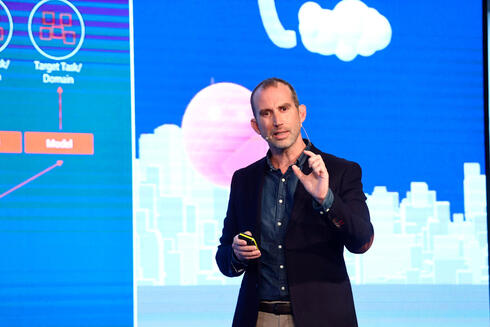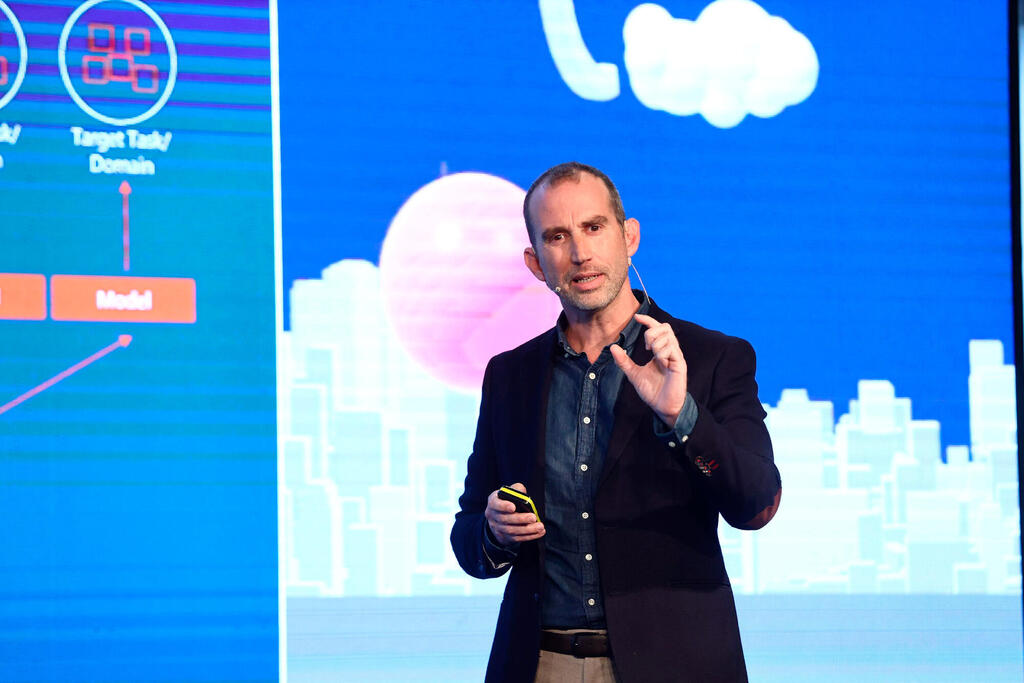
Tech TLV 2022
Microsoft Israel R&D Chief Scientist: "We are making AI accessible to everyone without the need to be an AI engineer"
"If in the past we had to develop a new artificial intelligence for each function, today’s artificial intelligence consists of one model that can perform many tasks," said Dr. Tomer Simon, speaking at Calcalist's Tech TLV conference
"I want to talk about amazing developments in artificial intelligence in recent years," said Dr. Tomer Simon, Chief Scientist, Microsoft Israel Research and Development, speaking at Calcalist’s Tech TLV conference on Tuesday. "In the past two years, you've probably read about the innovation and perhaps used it. In the last four years, the big change has happened."
"Think about how many pictures you take. Until we look at the pictures, we don't know what's there. Think about how many pictures are in the archives. We can't analyze history if we can't analyze and convert these pictures into text. Suddenly there is artificial intelligence that can help us describe what is in each image; analyze the image and convert it into text.
"If in the past we had to develop a new artificial intelligence for each function, today’s artificial intelligence consists of one model that can perform many tasks. I take one model and it can recognize both texts and images of horses, dogs, and cats. I just have to improve it and not develop a new intelligence from scratch. This model knows how to receive any kind of information. If I once had to take a picture of a cat, today the intelligence can also accompany it with a text related to cats."
Simon also explained the significance AI has to reading. "Reading is one of the most critical skills for students' development. Our education group has developed artificial intelligence that helps students develop these skills. Until now, teachers would give comments on students' reading. But with our system, students talk to the computer and the computer gives them feedback on their reading skills, and gives them personal reading recommendations that will help them.
"The number of meetings at work has increased by 250% and we can't make it to all the meetings. With the help of artificial intelligence, everyone to whom the meeting is relevant receives a personal summary and knows where their name was mentioned. Instead of watching a recording of a two-hour meeting, we can extract insights from it. This is the democratization of AI; a process that makes artificial intelligence accessible to everyone without the need to be an AI engineer."
Simon added how at the moment most of the content we see is video and how with the help of a new model, AI can analyze the text that appears on the clapper board and thus save 85% of the time of the editing process of movies through the initial analysis of the texts that appear on the clapper board.
"If I had studied medicine in 1950, I would not have had to learn new knowledge throughout my career. On the other hand, today medical knowledge in the world doubles in just a few months. In Israel alone there are over 20 terabytes of text that doctors type every year, which is not being used,” noted Simon. “Think how much the patient experience could improve. A person comes to the emergency room with a broken leg, but he also reports abdominal pain. All this data can be analyzed together and can signal to the doctor that he could have cancer."















